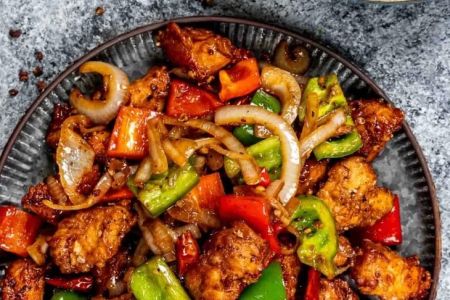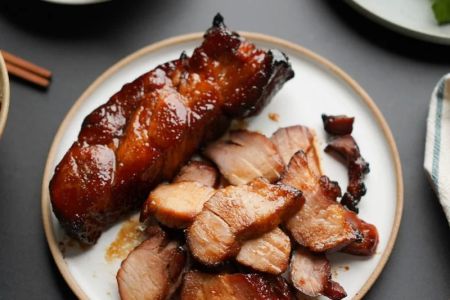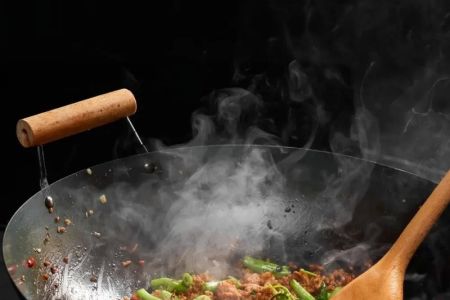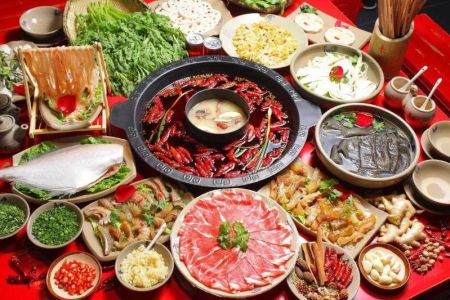Chinese Food Hacks for Beginners: Easy Tips and Tricks to Elevate Your Cooking
Chinese food is one of the most popular cuisines around the world, and it's no wonder why. With its rich flavors, vibrant colors, and diverse ingredients, it's a cuisine that can easily satisfy anyone's taste buds. As someone who's always loved Chinese food, I was excited to dive into cooking it at home. However, I quickly realized that the process can seem overwhelming for beginners. Whether it’s the long list of ingredients or the intricate cooking methods, there’s a lot to take in. But don't worry, after trying and failing a few times, I discovered some game-changing hacks that make cooking Chinese food easier and more enjoyable.
1. Start with the Basics: Stock Your Pantry with Essential Ingredients
When I first began cooking Chinese food at home, I found that the key to success was stocking my pantry with the right ingredients. While some Chinese recipes can be complex, many of the basic dishes require a few key ingredients that are easy to find and store. Some essentials include soy sauce, rice vinegar, sesame oil, hoisin sauce, and oyster sauce. These ingredients form the foundation of many Chinese dishes, and once you have them in your pantry, you’ll be able to whip up a variety of meals.
One of my favorite tips is to buy these ingredients in bulk, as they last for a long time and can be used in a variety of recipes. Also, investing in a few spices like five-spice powder and Szechuan peppercorns will allow you to add that authentic Chinese flavor to your meals without much effort.
2. Use a Wok for Authentic Stir-Frying
If there's one piece of kitchen equipment that is indispensable for Chinese cooking, it's the wok. A wok is versatile and perfect for stir-frying, which is a technique commonly used in Chinese cuisine. I was initially intimidated by the wok, but once I started using it, I couldn’t get enough of how well it works. Its shape allows heat to distribute evenly, which is essential for stir-frying vegetables and proteins at high temperatures.
The key to a successful stir-fry is prep work. Chop your ingredients beforehand and make sure everything is ready to go before you start cooking. Stir-frying is a fast process, and you don’t want to be scrambling to chop vegetables while your food burns in the wok. I also learned that using high heat and a bit of oil helps create the perfect crispy texture on vegetables while keeping them tender inside.
3. Marinate Your Meat for Extra Flavor
One of the things I learned early on is that marinating meat in a flavorful mixture is crucial for creating delicious Chinese dishes. For a simple marinade, combine soy sauce, rice vinegar, a touch of sesame oil, and sugar. Marinating the meat for at least 30 minutes, or preferably overnight, helps tenderize it and infuses the flavors deeply.
My go-to marinated meats include chicken and pork, but beef works well too. If you're in a hurry, you can even marinate the meat while you prepare the rest of the ingredients. The key is to balance salty, sweet, and sour flavors to create a harmonious taste in the dish.
4. Master the Art of Sauces and Broths
Chinese food is known for its flavorful sauces and broths, and learning how to make them from scratch is a game changer. For example, a simple stir-fry sauce made from soy sauce, oyster sauce, and a bit of sugar can turn any bland dish into something delicious. The combination of salty, sweet, and umami flavors in sauces like hoisin sauce and black bean sauce brings depth to your cooking.
Another great tip I picked up is to make a quick chicken or vegetable broth using ingredients like ginger, garlic, and scallions. This broth serves as the base for soups and noodle dishes and adds a wonderful, savory flavor that makes the dish feel homemade. Trust me, once you master the art of broths and sauces, you’ll elevate every dish you make.
5. Use Fresh Herbs for an Extra Burst of Flavor
Herbs are a staple in Chinese cooking, and they make a big difference in flavor. Fresh cilantro, green onions, and basil are commonly used in many dishes. I personally love adding freshly chopped cilantro to my stir-fries and noodle dishes for an added burst of freshness. Green onions are another versatile herb that works in almost everything, from soups to rice dishes.
It’s easy to forget that fresh herbs can truly transform your cooking, but after incorporating them into my dishes, I noticed a huge difference. They brighten up the flavors and add a nice contrast to the richness of the sauces and broths. For beginners, I recommend starting with a few essential herbs and experimenting with different combinations to see what works best for your palate.
6. Explore Easy-to-Make Chinese Dishes
When you're first starting out with Chinese food, it’s a good idea to begin with simple dishes that require fewer ingredients and steps. Dishes like fried rice, lo mein, and sweet and sour chicken are great for beginners because they allow you to practice your cooking skills while still getting a delicious meal. These dishes can be made with just a few ingredients, and once you have the basics down, you can start to experiment with different flavors and ingredients.
One of my favorite beginner-friendly dishes is fried rice. It’s a great way to use up leftover rice and customize the flavors based on what you have in your fridge. I love adding vegetables, eggs, and a bit of soy sauce for a simple but satisfying meal. It’s also a great dish to practice your stir-frying technique.
7. Don’t Be Afraid to Experiment
Chinese cooking is all about balance, flavor, and creativity. Don’t be afraid to experiment with new ingredients, techniques, and flavors. Even if you make a mistake or something doesn’t turn out quite right, it's all part of the learning process. I’ve learned that the more I experiment, the better I get at understanding how different ingredients interact and how to balance flavors in my cooking.
One of the best things about cooking Chinese food is the freedom to try different variations of traditional dishes. Whether you’re making your own dumplings, experimenting with different stir-fry sauces, or playing around with different noodles, the possibilities are endless. As you continue to practice, you'll find your own signature style and preferences in Chinese cooking.
Chinese food hacks for beginners don’t have to be complicated. By starting with a few essential ingredients, practicing some key cooking techniques, and being open to experimentation, you can master Chinese cooking in no time. Once you get the hang of it, you'll be able to create delicious meals for yourself and your family while impressing everyone with your cooking skills. Enjoy the journey, and happy cooking!
If you're looking for more Chinese food tips, tricks, and recipes, be sure to visit Chinese Food for all the resources you'll need to get started in your culinary adventure.






![Top Chinese Restaurants for Authentic Cantonese Cuisine in [Your City]](https://img.gochinarose.com/d33/2507/4157910400_450x300.webp)
